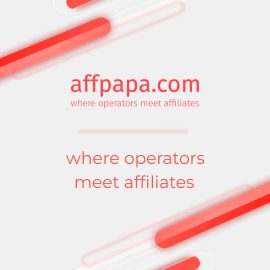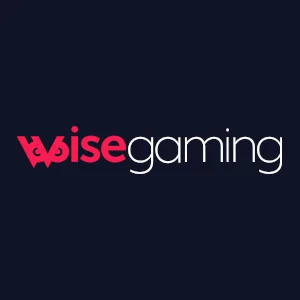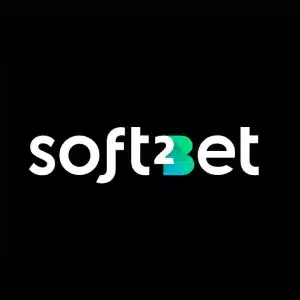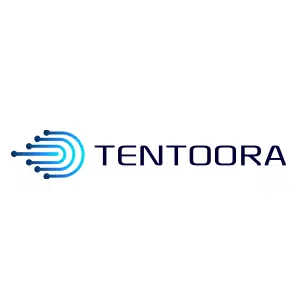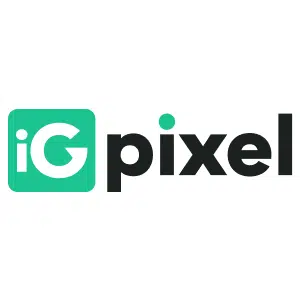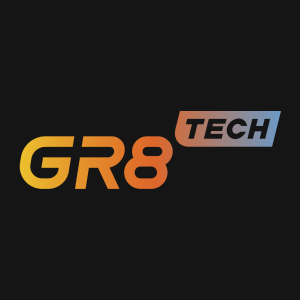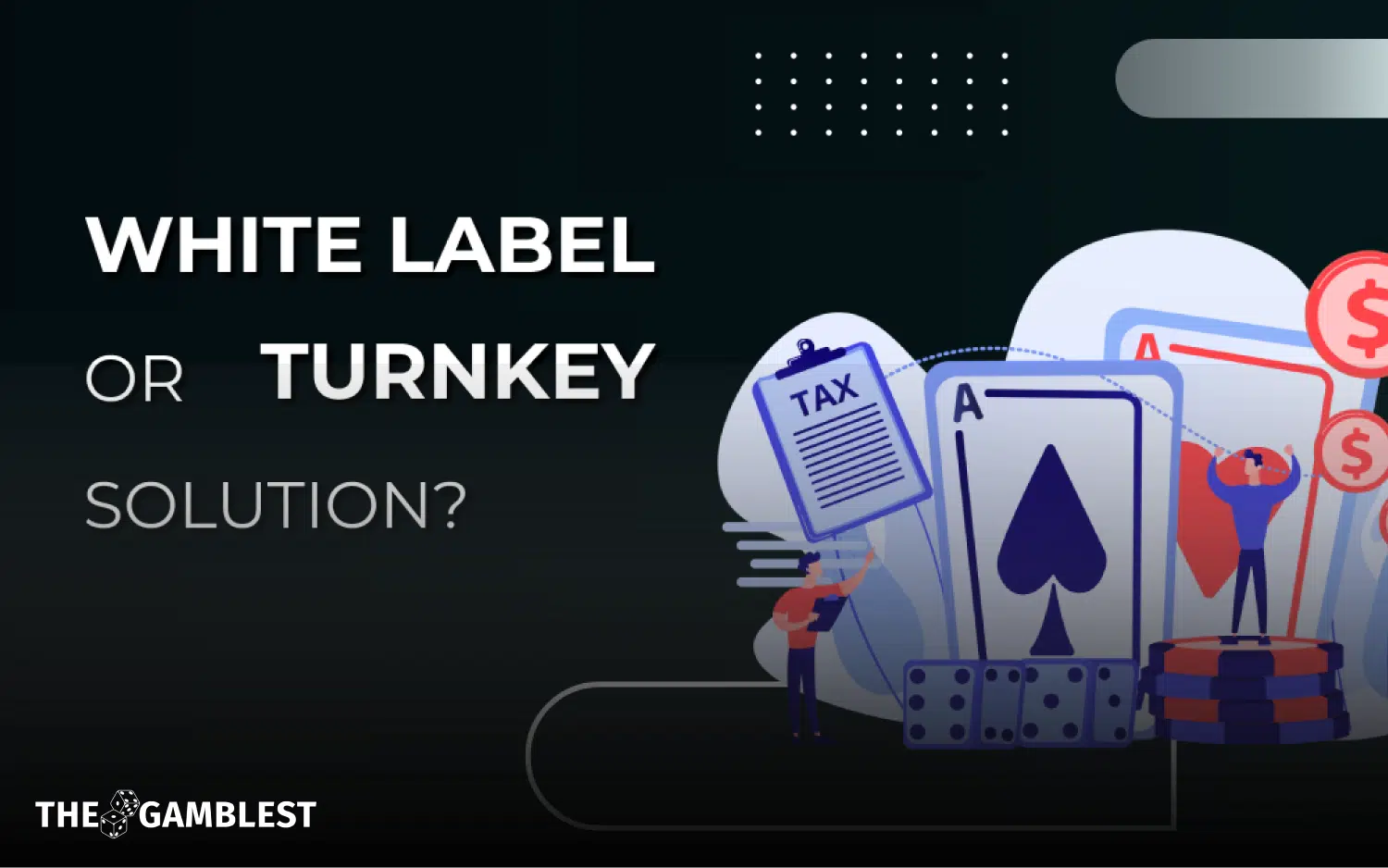
Which one offers better solutions for your online casino’s key components such as software and licensing, White Label platform or Turnkey platform?
The iGaming industry is quite large and is growing day by day. A lot of people have ambitions of entering it every year as an operator, yet only a small portion of them manage to succeed. A big part of this is how challenging sorting out some key details of an online gambling website can be, such as the games, auxiliary software, and licensing. However, there are various software solutions available that can help start-up operators with these important aspects, with the most prominent ones being iGaming platforms.
Developed by specialized B2B providers, iGaming platforms are designed to help operators in the process of software integration. The two most popular types of iGaming platforms are the White Label and the Turnkey, both of which provide various software packages to operators, although the approach and features offered by both types vary significantly. Let’s take a deep dive into white label and turnkey platforms, along with their differences, starting with the former.
B2B providers offering white label and turnkey iGaming platforms
Before we get into the details of both solutions, let’s discover a list of a few top B2B providers that offer white label and turnkey iGaming platforms below.
What is a White Label iGaming platform?
A White Label platform is a specially developed solution that is designed to take care of almost all aspects of an iGaming operation. A service like this will typically have minimal upkeep for the operator and will be almost completely ready to go, missing only a logo and a brand name, which is where the name White Label comes from. These solutions are usually the easiest way to start a new online gambling and/or betting brand, regardless of the operator’s experience or level of technical knowledge.
White label iGaming platforms are an excellent way of starting a brand new gambling business from scratch, as they offer unbeatable launch timeframes thanks to their mostly complete nature. However, what does this exactly include? Let’s explore what white label casino platforms offer next.
What do white label casino platforms offer?
Some of the most significant parts contributing to a white label casino platform’s complete nature are key components for any online gambling business operating anywhere in the world. This includes everything like content offerings, such as games and betting options, and licensing services in the form of either assistance for acquiring a license or permission to utilize the provider’s master license. White label platform developers also provide their clients with payment solutions and the integration of all of the gambling website’s core and auxiliary components through a single platform. All of these products and services together enable the customers of white label casino platform providers to effortlessly launch an online gambling business in no time.
Some of the industry’s most acclaimed white label iGaming platform providers offer many additional features as well, such as player engagement and retention solutions through casino loyalty programs, website building and hosting services, affiliate management solutions, customer support services, and customer relations management solutions, among many others. All of these products and services contribute to a set of higher-quality gambling experiences, which in turn elevates the quality of the online casino for the client.
To sum up what auxiliary products and services iGaming platform providers can offer in addition to content, the most common white label casino platform features include:
- Casino loyalty programs
- Affiliate management
- Website building and hosting
- Customer relations management
- Customer support
- Licensing
- Payment solutions
- Casino bonuses
As mentioned previously, the only things that white label casino platforms can’t offer are logos and branding, which brings us nicely to our next point of discussion.
If a White Label platform does most of the work, what are the responsibilities of the operator?
While the operator’s responsibilities will vary depending on the quality of the white label casino solution and platform developer of their choosing, the most common tasks that will be delegated to them will be branding, marketing, and player acquisition. This includes everything from the creation of a brand name and logo to various marketing activities such as promotional campaigns. The operator will also have to create advertising materials for their marketing campaigns, which they can facilitate either on their own or through affiliates.
Another major aspect operators utilizing white label online casino platforms will be tasked with is player acquisition. This usually requires operators to not only run compelling marketing campaigns but also offer their players a set of standout bonuses and special deals. However, some of the best white label casino software providers offer their partners assistance with player acquisition, with custom-tailored marketing campaigns and promotions being the most popular solutions available. The White Label platform developer will be handling everything else.
Here are the main duties of an operator in a white label contract summarized:
- Branding
- Marketing
- Player Acquisition
The difference between a White Label platform and a Turnkey platform

The main difference between white label and turnkey platforms is the software packages offered by each type. A turnkey casino platform is a custom-built solution that integrates iGaming content into a single user interface, providing software and technical assistance while giving the operator complete control over its business. However, unlike white label platforms, turnkey ones do not offer most of the other components needed for a complete online casino deployment.
Because of this, turnkey platforms take a longer time to set up, since operators must source everything except for the games themselves, which will include things like integrating payment solutions, setting up a casino website with an intuitive user interface, implementing player retention features, such as iGaming loyalty programs, and obtaining a gambling license. Operators utilizing turnkey casino software will also be required to purchase website hosting services and configure all related variables through third-party associates to be able to launch their businesses.
White Label platforms, on the other hand, allow online casinos to utilize their built-in payment and player retention solutions, along with many other software packages. Many high-quality white label casino software providers even offer website hosting solutions for their partners, further contributing to the effortless and quick setup process offered by a white label gambling platform. Additionally, white label iGaming platforms also allow gambling firms to operate with the developer’s master license, enabling them to enter the industry without having to worry about reporting to regulators and dealing with any of the associated paperwork.
Due to their nature, white label casino platforms are perfect for those that have a brand that can lend itself well to an online gambling business. This includes various celebrities and companies that may be well-versed in the general entertainment space but are not that knowledgeable about the online gambling industry. Turnkey platforms, on the other hand, are better suited to enthusiastic iGaming professionals who may enjoy tweaking the various little variables turnkey gambling platforms provide.
Additionally, turnkey platforms also present some advantages, such as a higher level of customizability as compared to White Label, where most aspects must be agreed upon with the supplier. There is no better or worse here; each online casino needs a specific platform that meets its requirements to operate effectively. Let’s go further into the advantages and disadvantages of each platform to see which is better suited for you and your business.
Pros and Cons of a Turnkey solution
Pros:
- Customizability – A Turnkey platform will allow a much greater degree of personalization than a White Label service. Typically the former enables an operator to utilize the payment providers, player retention services, and other important casino modules of their choosing, apart from the games. This also allows for a much higher degree of fine-tuning of the various important variables throughout an iGaming website, such as promos, withdrawal limits, and various player engagement strategies such as casino loyalty programs. Operators can also easily add lots of additional software solutions, which is the next point we will take a look at.
- Expandability – Turnkey Platforms make adding software down the line much easier, enabling operators to continuously expand their offerings in a way that perfectly caters to their audience. This has the added benefit of allowing iGaming businesses to integrate various other gambling niches into their casino websites relatively seamlessly, such as sports wagering, online lottery, bingo, live casino, and more, giving Turnkey Platforms a sizable edge over their White Label counterparts for operators that have the capability to take full advantage of them.
- Potential to have a richer offering – With the ability to customize the entirety of the platform outside of the games, a turnkey software solution can enable an operator to gather a much bigger catalog of supporting features. As discussed previously, turnkey iGaming platforms allow iGaming operators to integrate and fine-tune many varying aspects of their casinos, from payment methods and other auxiliary systems to even adding different gambling offerings. However, turnkey platforms can also allow operators to add more games to their catalogs much more easily, as they won’t have to work with and risk breaking pre-configured integrations often present in white label platforms.
- Cost – This is one of the larger advantages of turnkey gambling platforms, as turnkey platforms will usually cost quite a bit less than their white label counterparts, and can even require a one-time payment as opposed to a subscription in some rare cases. These savings will be especially noticeable in the long term, as the monthly fees add up over time, and can allow operators to increase their profit margins. However, they come with a disadvantage, as turnkey platforms require a much higher degree of involvement from the operator, which is conveniently our next point of discussion.
Cons:
- Involvement – A Turnkey gambling platform, while offering quick and easy integration of content, will require a lot of effort to set up a final operation. This matters especially if the operator has a smaller team and budget, as integrating all the required services that an online casino needs, such as payment, account management, and promotional solutions, will require a lot of technical skill and take a lot of time.
- Time – Closely related to the previous weakness, the time required to complete and finalize a gambling business is significant. Larger operators may not see this as too big of a disadvantage, but for smaller teams, this might be the biggest one, as they are typically running with tighter budgets and cannot afford to wait a longer period to see a return on their investment.
- Technical Knowledge – Advanced technical expertise is quite important with a turnkey software platform. It will be required for all sorts of tasks during the integration process and for maintenance. This will require a small team of programmers, who are always in high demand, making it even trickier. Furthermore, the operator will also need a decent amount of technical knowledge to find compatible software packages to combine with their turnkey casino platform, which is another challenge in itself, and conveniently the next point we are going to cover.
- Compatible Software – Closely related to the previous disadvantage, finding compatible software that will play nicely with the games from a turnkey platform can be quite tricky. Some game developers may have built-in integrations with a number of auxiliary providers, but because of how big the industry has gotten in the past few years, it is a rare occurrence to land a perfect pairing with all casino systems.
Pros and Cons of a White Label solution
Pros:
- Licensing – This is a major upside of a White Label platform. Utilizing a White Label gambling solution, an operator doesn’t need to worry about licensing, as the platform developer takes care of that for them. White Label platform providers typically hold master licenses that can be expanded to include their associates, vastly reducing the time required and the complexity of deploying an online casino or betting business in a new jurisdiction. Most renowned casino software providers have a collection of different licenses that would take an operator months to obtain. Additionally, this system allows operators to save time by not having to report to numerous gambling regulators, as they only have to do so to their platform’s developer, who then deals with all the appropriate government agencies.
- Features – A White Label casino solution, as the name suggests, offers a much more feature-rich experience. One of the most useful features that turnkey platforms usually don’t provide is automation. A lot of White Label solution developers include excellent automation tools in their products. However, that doesn’t mean that with a Turnkey solution an operator cannot gather the same features, though some White Label platform developers work closely with the creators of various modules to produce special integrations between different systems in their platform that are exclusive to them. An operator using a Turnkey service still could recreate solutions like those, although it will be quite an undertaking. Consequently, that’s another point where White Label software solutions shine.
- Ease – Being one of the most important aspects for operators with smaller teams, this one is pretty self-explanatory. White Label solutions, in the vast majority of cases, do not require any technical expertise or much work to set up. They will not require programming knowledge or the time required to integrate multiple services with each other, such as payment gateways and player engagement solutions. All of this makes for a very quick set-up process, which just so happens to be the next advantage of White Label platforms that we are going to look at.
- Speed – Speed, being one of the biggest downsides of Turnkey platforms, is one of the most prominent upsides of White Label solutions. With the latter, an operator can get their business running in days, if not hours. Getting up and running quickly is of utmost importance for start-ups, as mentioned before because they will generally not have deep enough pockets to keep investing into their businesses with no results for a period. For larger companies, this won’t matter as much, although getting immediate results is still a nice luxury.
- Payment Options – Another upside of white label casino platforms is their integrated casino payment solutions. While turnkey gambling platforms can have a catalog of payment gateways that is not too dissimilar from those offered by the best white label platform developers, the main place where the latter stands out in the turnkey vs white label comparison is in the process of integration. Many popular casino payment providers are hesitant to work with gambling businesses because of the inherently higher-risk nature of the industry. Because of this, many payment companies will want to carry out thorough risk assessments before working with a new partner, which can be a lengthy process. Sometimes some of the industry’s largest payment gateways may completely refrain from working with upstart firms that have not had the chance to prove themselves as reputable partners. White label iGaming platform providers help their clients avoid all of these issues by getting all of the certifications ahead of time and utilizing their extensive experiences in the industry to be able to work with major payment companies around the world.
Cons:
- Customizability – Customizability is hard to achieve with all-in-one solutions. While some developers might remove features on request, it’s rare. Adding features is even tougher, with few developers offering such services. Turnkey platforms, though still limited, allow extensive personalization outside of content. This is because modifying a media-only platform is more common and easier. Customizing white-label iGaming platforms is challenging because many operators use the same servers, complicating changes. Some developers offer dedicated servers for top clients, but businesses valuing customizability are better served by turnkey solutions.
- Serviceability – Another downside of white label iGaming platforms is their serviceability. Because of their tightly-integrated nature, white label platforms shouldn’t run into any issues and will most likely be much more reliable than turnkey casino solutions, however, if something does go wrong or needs to be fixed, the operator will most likely need to get the platform’s developer involved. This contributes to the relatively pricier nature of white label solutions, which perfectly segues us to the next point we are going to highlight, cost.
- Cost – One of the biggest cons of a White Label platform is the cost. Having someone else go through the process of a functional iGaming business that needs a logo and some branding will not be cheap, although it is important to remember that the majority of the price is paid once the business is up and running, not upfront. There are a couple of ways a platform developer may request their payment, which will be explored up next, although they are all monthly fees that reduce the barriers to entry significantly.
How do White Label providers make money?
White Label developers in the majority of cases earn their money through subscriptions, as massive upfront payments would not sit well with the ethos of enabling smaller-scale operators to get access to high-quality online gaming services. However, there are two types of revenue share models: percentage share and flat fee subscription. Let’s explore them further.
Percentage share
Percentage share models involve pretty much exactly what it says on the tin, a percentage of the revenue that is shared with the developer. Depending on the features, set-up times, and a bunch of other factors the percentage can vary quite a bit. Some platform companies that use a percentage share model will have contracts that allow the rate, as well as the term and a couple of other things to be negotiated. In contrast, others may not allow any negotiations at all. With this model the operator will pay based on their earnings, meaning that during a weaker period the chances of going under are lower, although quite a few platform developers will have a minimum payment.
Flat fee subscription
Similarly to the previous model, flat fee subscriptions are self-explanatory as well. The operator has to pay a fixed fee, in most cases every month. Again similarly to a percentage share model, costs can vary a lot. Unlike the previous model, though, there’s no safety net in case of a subpar performance period. The risks are higher with this one, although with high risks come high rewards. If an operator manages to excel and grow, they will grow their revenue faster. In contrast, a percentage share model will slow down revenue growth by a bit, although for larger operators there might be a significant difference.
Hybrid payment
Through a hybrid payment model, white label providers will get a combination of a revenue share rate along with a fixed periodic fee. Both of the components of hybrid payment methods will generally be lower in comparison to their traditional counterparts, however, when combined they can give both parties the best of both worlds: white label casino platform providers can be sure they will get paid enough to maintain the quality of their services each month while iGaming operators can be saving a bit of money in the long-term while still enjoying the benefits of a revenue share model.
Which one suits you and your business best?
 Amongst the sea of options of both Turnkey and White Label casino solutions, which type is the best for you? Like many other things in the industry, it depends. If you have nothing but some cash and wish to have your own online gaming or wagering company, a White Label platform seems like the best place to start. If you have a lot of resources and maybe even a team, it will still be a great option to start immediately. However, a Turnkey casino solution will suit you better if you want to turn every virtual knob, control every aspect of your operation, and have the funds to back it up.
Amongst the sea of options of both Turnkey and White Label casino solutions, which type is the best for you? Like many other things in the industry, it depends. If you have nothing but some cash and wish to have your own online gaming or wagering company, a White Label platform seems like the best place to start. If you have a lot of resources and maybe even a team, it will still be a great option to start immediately. However, a Turnkey casino solution will suit you better if you want to turn every virtual knob, control every aspect of your operation, and have the funds to back it up.
Furthermore, as mentioned earlier, white label casino platforms are excellent for those who have a brand that lends itself well to be utilized for an online gambling website. This includes celebrities who can use their name and popularity to launch a casino that will have a sizable audience of loyal players from day one, and companies in the entertainment space that can easily expand into the closely related gambling industry.
Starting an iGaming Business with a White Label Solution
A White Label platform suits anyone but the largest and pickiest operators, so it’s a great option to explore. The first thing you should do in the process is find a reputable provider. The most optimal place for this would be the internet, through various articles and lists, such as our iGaming B2B directory. Find a developer that has been around for a reasonable amount of time and has been tested through time. Additionally, developers with more certifications and licenses will generally offer a higher quality service than those who have significantly less or none at all. After doing extensive research, the only thing left to do is contact the company of your choice. Proceed with their instructions and do what they recommend for their services. It shouldn’t take long to be fully up and running, as that’s the beauty of White Label solutions.
After this, you will need to promote your new business to start getting traffic and earning money. While some white label casino providers offer marketing solutions to their clients, most companies utilizing white label iGaming platforms will need to take care of the marketing side of their businesses themselves. Fortunately, you can outsource the majority of your marketing efforts as well through the use of affiliate marketing. You can find iGaming affiliates on a specialized directory, such as the one offered by AffPapa, and utilize affiliate management services to start advertising your services and driving traffic to your white label casino without having to master marketing.
Starting an iGaming Business with a Turnkey Solution
Professionals looking to work with turnkey casino platforms will need to start largely in the same way as those working with white label gambling solutions, which involves a search for a high-quality iGaming platform provider. After finding a good match, the next step to launching a casino with a turnkey platform is integrating all of the necessary auxiliary software, such as payment gateways and loyalty programs.
While these software packages are not the main products of the business, many of them are vital to the growth of an online casino. Various player engagement-boosting solutions, such as loyalty programs and bonuses, are essentially required for companies to be able to compete in the crowded iGaming space, meaning it is important to choose a high-quality solution to integrate. Casino payment solutions, meanwhile, play a critical role in the delivery of an online casino’s experiences, making the integration of high-quality payment gateways equally important. All of this will involve lots of research to ensure you will be pairing your turnkey casino platform with auxiliary software that can deliver standout results.
Throughout the acquisition of auxiliary software, operators need to ensure their integrations will be compliant with the licenses they wish to launch their websites with, as the licensing process is what follows next. There are many regulatory authorities a gambling firm can acquire a license form, each of which features varying requirements and involves different application processes. Check out our article on the top online gambling licenses to learn more about the topic. Sorting out the website’s licensing status is pretty much where the differences between launching a casino with a turnkey platform and a white label solution end, as operators will then be required to launch marketing campaigns and acquire a player base to start earning.
Conclusion
To conclude, White Label platforms offer more of a premium experience than Turnkey solutions. They are suitable for anyone but the most established and scrupulous operators, as most offer high-quality products that the majority of their customers will be satisfied with. They are more expensive than Turnkey platforms, though, as they do the hard work for the operator. The only thing left to the latter is of course branding and marketing. White Label software solutions usually require monthly payments, utilizing either a percentage share model or a fixed, usually monthly fee.










